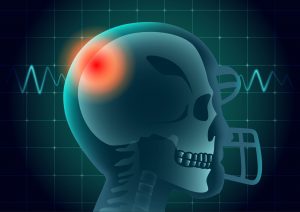
By Papa Annur at Shutterstock
Brain injuries can occur to anyone at any time. Just like other injuries, trauma to the brain can occur in a wide number of circumstances, produce various symptoms, and are never exactly the same. An Acquired Brain Injury (ABI) refers to a specific classification; it should not be confused with traumatic brain injuries. Traumatic brain injuries are a subset of acquired brain injuries, however, the two are not the same. This common misconception, coupled with the estimated one million people who suffer from ABIs every year, are two of the reasons that the TryMunity online community was formed. Read on to learn more about ABIs and the rehabilitation process that is often associated with this type of brain injury.
What Is an ABI and How Can Someone Recover?
An Acquired Brain Injury (ABI) can occur due to a number of reasons including, but not limited to, a stroke or another injury that limited or cut off the brain’s oxygen supply. It’s important to mention that degenerative illnesses, such as Parkinson’s disease, are not considered ABIs. In this vein, recovery from an ABI will take time, patience, and the right rehabilitation.
Severe ABIs can often lead to life-long rehabilitation. Minor ABIs can lead to short rehabilitation and treatment processes. Successful rehabilitation after a brain injury will depend on a multitude of factors, such as the severity, degree of resulting disabilities, type of resulting impairments, overall health of the patient, and the support of the patient’s surrounding family members and caregivers. With this in mind, support is of the utmost importance as survivors complete acute, subacute, long-term, transitional, behavior, and independent living rehabilitation programs. The goal of each type of rehabilitation program is to help the survivor achieve the highest level of independence and function as they seek to establish their “new normal.”
Discover Rehabilitation and Hope with Help from TryMunity
The brain is a truly phenomenal organ that has the incredible ability to heal from many types of injuries. A combination of rehabilitation treatments can help survivors relearn how to perform daily activities. With time, support, and therapy, many survivors can significantly enhance their recovery. At TryMunity, we believe in helping survivors, caregivers, and their families and friends as they begin the journey toward healing. Through our social ABI community, you can find the resources necessary to answer your questions, connect with other survivors and caregivers, and receive the support that you need.
By raising awareness, creating a respectful space, and offering helpful resources, we seek to help anyone who is impacted by an ABI. Contact a member of our community today to learn more about acquired brain injuries, to share your story, or to receive support during your rehabilitation journey. When you are ready, join our online community at community.trymunity.com. This site is dedicated to supporting individuals from all walks of life who are impacted by ABIs.






